D2D Interview: Lev Grossman
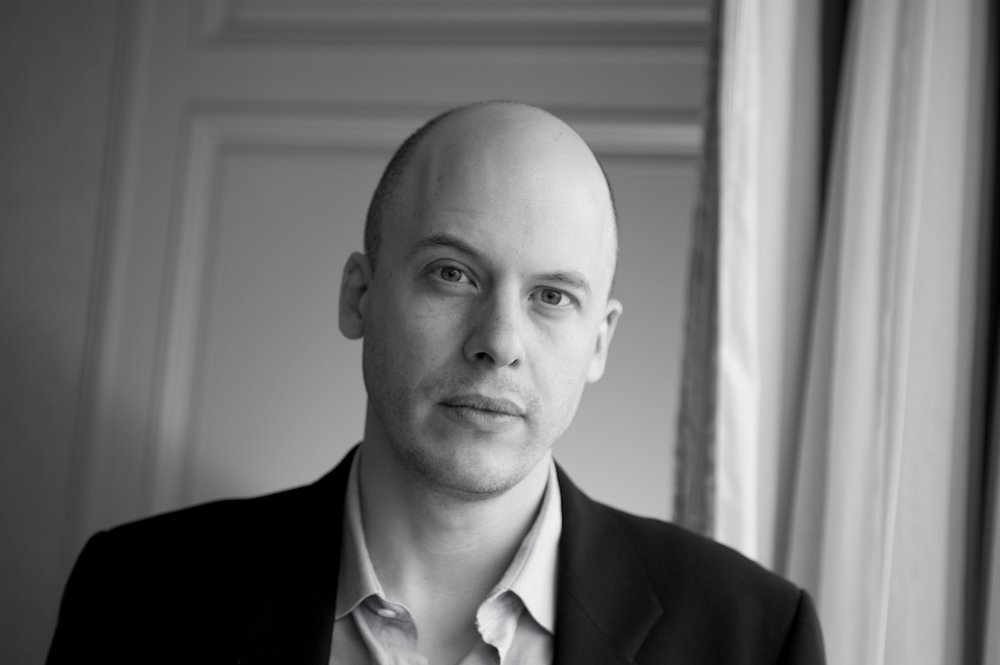
My wife is the big reader in our house. Much like I come home with booze and say, "Drink this; it's good," she hands me books to read every few weeks and says, "Read this; you'll like it." A few months ago she handed me a book called The Magicians: the first novel in the Fillory trilogy written by bestselling author Lev Grossman. "It's like an adult version of Harry Potter," she said with a grin. That's the quick summation that many give Grossman's Magician series (and I'm sure he's sick of hearing that by now), but in all honesty it's a great way to get people intrigued. I loved the Harry Potter books, so if you throw in some sex, drugs, and rock n' roll with all those cosmic hijinks, there's no way I'm getting off the couch all afternoon. Throw in tons of booze, as Grossman does with his alcohol-loving wizards, and you've really got yourself a party. The Magicians is definitely my generation's Narnia, but it's also full of wine, cocktails, Lagavulin, and swearing—all the things that C.S. Lewis conveniently left out.
Don't think that in the new age of hyper-quality television drama a series like The Magicians would only be confined to the printed page. Grossman recently signed a deal with the SyFy network to bring Quentin and the Brakebills crew to your living room screen in 2016. In addition to his career as a novelist, he's also written for the New York Times, Salon, Wired, Entertainment Weekly, and pretty much any other popular publication you can think of. Most importantly, however (at least as it relates to this blog), Lev Grossman likes to drink, and it's clear from the moment you start digging deep into the first Magicians book and the late night parties begin to rage. Not only do the Physical Kids like to drink, but there are moments when their drinking captain Eliot Waugh gets pretty geeky and goes deep into the details. By the time I finished reading the first novel I was incredibly thirsty, and I knew I needed to get in touch with Lev for a quick conversation about drinking. This guy obviously knew his stuff.
In this edition of Drinking to Drink, we talk about limiting your intoxication while in the act of writing, looking for inspiration in an English countryside pub, and how promoting alcohol in a positive light isn’t always the easiest thing to do. Previous editions of the D2D series can be found by clicking here, or by visiting the archive in the right hand margin of the blog.
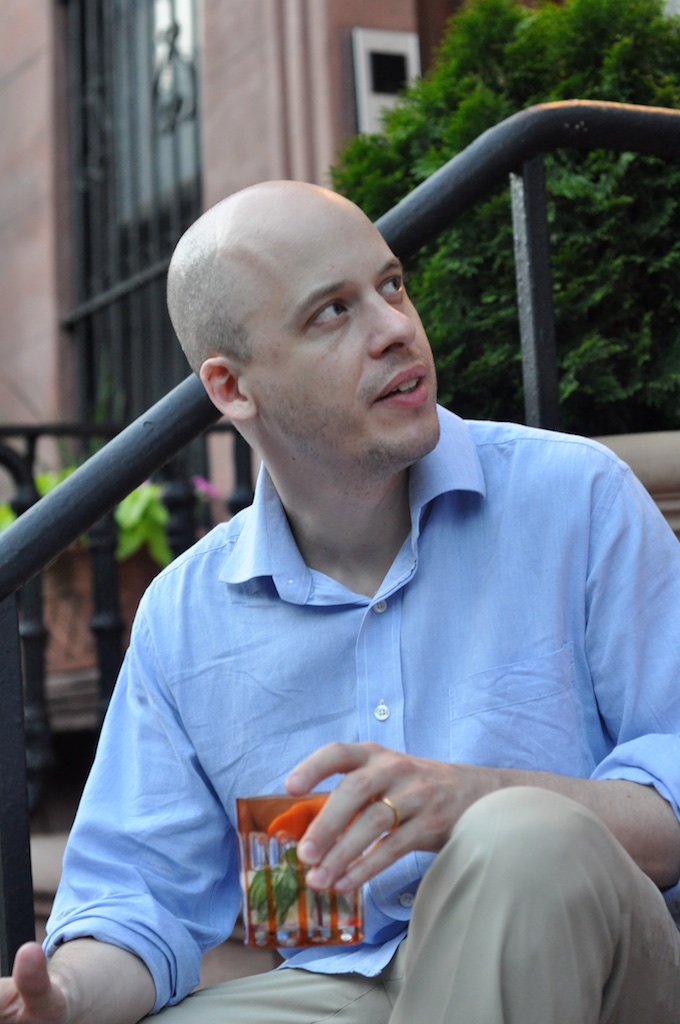
David: Thank you for doing this, again. One of the most fun parts of writing this blog has been the outreach I’ve been able to do with people that I admire or find interesting, and who also happen to enjoy drinking. It’s been a bit overwhelming at times, but it’s quickly becoming the most exciting part of my week.
Lev: That’s a bit like my job as well. It brings you into contact with people who exist in only God-like abstractions, but then you meet them and they become people you know. It’s sort of an amazing thing.
David: Has that been your experience from writing the Magicians books, or more from your work as a journalist?
Lev: It’s happened from writing the Magicians books, and I do meet a lot of insanely exciting people as a journalist. But the thing about meeting people as a journalist is that it doesn’t really count because they have to talk to you, and it’s not really human interaction (laughs). Somebody is promoting some commodity or another, and I’m implicated in that promotion. There are all sorts of other forces pertain that are rather non-interpersonal, and make it less fun.
David: Who is someone exciting that you’ve come into contact with since writing The Magicians?
Lev: George R.R. Martin, for example. George is one of these writers who has been really essential to shaping what I do as a writer. I’ve spent dozens, if not hundreds of hours immersed in things that he’s created. Before The Magicians came out I sent him a copy and asked him for a blurb—he very generously gave one. Then I started to bump into him at festivals and conventions, and he then became somebody that I know, and that I’m friendly with. It’s really sort of astonishing.
David: That’s been my experience entirely. I’ve become a texting buddy with Kevin Nash since we did the interview a while back and that about blew my mind when it started happening since he was one of my idols as a kid. Have you found that other writers like George share your affinity for drinking?
Lev: Well, it’s funny—some do and some don’t. I’d say most do, but one thing you run into with writers, and that runs counter to the kind of Hunter S. Thompson, dissipated archetype we know: a lot of writers are very into control. It’s one of the reasons they are writers. They don’t collaborate well. They like to have control over every part of the operation, which is something you can have when you write a novel, as opposed to writing a TV show or something like that. So every now and again I run into one who likes control so much that they don’t drink at all.
David: That is contrary to what I would normally associate with writers; especially the romantic ideal of someone like Hemingway who has numerous bars and cocktails named after him. There’s the idea of a writer sitting in a bar somewhere exotic with a pen and a chewed up notebook, quixotically writing the novel for his generation.
Lev: Well that’s what I imagine. But writing requires enormous discipline and control. At the same time, it requires the ability to really lose control and think with this chaos of emotions. You’re sort of struggling to do both at the same time, and it tends to drive you to one extreme or the other. But I think this Hemingway guy at the bar—he does exist. I’ve been him at one time or another.
David: When you were writing the first book of The Magicians series, were you abstaining from alcohol to remain in control, or were you imbibing to unleash that chaos? Because you write a lot about drinking in the first book. Maybe that was your way of coping? (laughs)
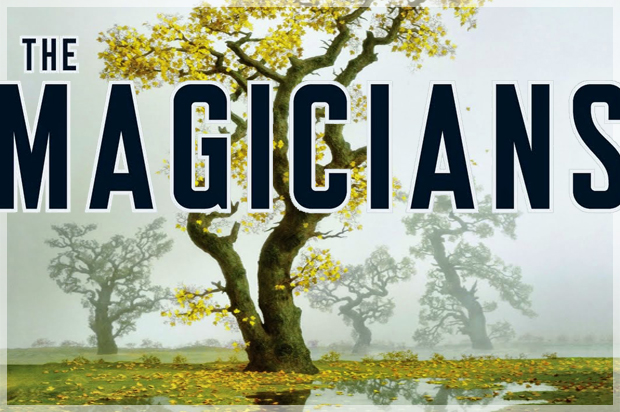
Lev: I was drinking a healthy amount at that time. Early on I would drink and write at the same time. I had a two pint limit. I felt two pints was as much as I could ingest and still be a reliable narrator. Later on that tended to taper off and I kept them separate, but—as you point out—I tend to write a lot about drinking, and people who drink. In the case of The Magicians, it was because the magicians themselves are a self-selecting bunch; they tend to be very clever, very aggressive people. Their brains spin very fast, and occasionally they need to find a way to slow them down a bit. Drinking seems to work well for that.
David: One of the characters in the story—Elliot, the sort of goth kid—seems to particularly enjoy his drink.
Lev: He’s the true lush of the group.
David: He’s definitely the K&L employee of the bunch; cooking something fancy while nursing a bottle of Chablis. Where did the inspiration for that character come from?
Lev: He’s not me, sadly. The inspiration for that guy is a person I know, but I’m going to decline to name. There’s always sort of one in the crowd, who in addition to being into wine and spirits is also a great scholar of them. The one who ferrets out a great bottle, then happily lets you drink it—and then unhappily bores you with really elaborate tasting notes about it.
David: (laughs) I know that guy very well.
Lev: But he’s a real useful guy to have around.
David: He can be. What were the motivations for selecting Elliot’s particular beverages? Because they’re very specific. He gets a bottle of Lagavulin for Christmas I think, and he’s always whipping up signature cocktails.
Lev: Some of the cocktails in the book have a real personal meaning for me; one of them that Elliot likes particularly. There’s a Champagne cocktail with Lillet and vodka. It has two sorts of inspiration; one of them being the infamous Pan-Galactic Gargle Blaster from The Hitchhiker’s Guide to the Galaxy. If you happened to have grown up with those books, that’s what you believed cocktails were when you were a little kid, and as it turned out: you were right. It was a very accurate description. But that was also a drink that was served at this weird little concrete bunker of a bar that was around the corner from where I lived at the time. It was a lousy bar, frequented almost exclusively by the staff of the restaurant that was attached to it, but they did serve that cocktail. I stopped by there pretty regularly. It got me though some difficult times.
David: When we were exchanging emails previously you were in rural England. You were attempting to go without most modern technology at that point. Were you searching for new motivations in the English countryside, or were you actually working on something new?
Lev: I was hard at work on something new, and for the kind of fantasy that I write being in England helps because that’s where it comes from. It’s very densely rooted in this pre-industrial fantasy of the English countryside, which in many places still pretty much exists. It’s helpful to go there and sort of marinate in it—look at the hedgerows and the meadows. It really kind of refills the well from which all this stuff comes.
David: Are stopping for a few pints at the local village pub along the way? That’s always my favorite part about visiting the Yorkshire.
Lev: There’s really nothing else like them, is there? I’m a real pub whore; it’s hard for me to pass one without going in, and it’s hard to put your finger on what makes them so congenial. They seem to just grow right out of the ground like some naturally-occurring geological formation. They’re incredibly snug, and they have this hobbit-hole quality, which is impossible to recreate elsewhere. It’s exceptionally pleasant. We would generally descend on one around five o’clock, order a couple of pints and some packets of salt and vinegar potato chips, then split them open on the bar in that English way that they do. There we would stay for the next couple of hours. The nice thing about pubs is that they’re extraordinarily friendly to children, so our kids would be right there with us.
David: What is it about pub culture—that hobbit-hole quality you mentioned—that seems to inspire so much of fantasy literature? Tolkien obviously had a soft spot for the pub, and even J.K. Rowling slyly uses the butterbeer metaphor in Harry Potter because the kids are underage.
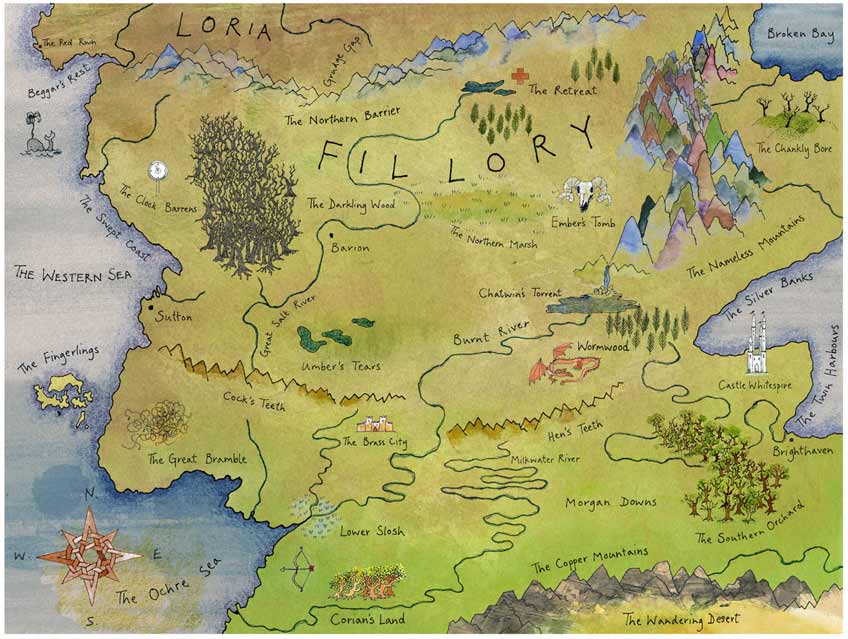
Lev: There is a connection, isn’t there? It’s true, the depictions of drinking in Harry Potter are surprisingly positive, which I really like about it. Fantasy is a really emotional genre; it’s a kind of sloppy drunk. There’s so much passion, anger, grief, weeping, and triumph, and things like that. All these big emotions just get loose, which is something I love about it. It’s the kind of stuff that comes out when you’re on an emotional binge. When you write fantasy, you can’t hold back at all; you can’t be cute, or coy, or ironic—you really have to let it all hang out in this wonderful way that I find drinking often facilitates.
David: What do you typically drink at home, when you’re not hanging out in countryside pubs?
Lev: On a normal night I almost always drink wine. Because I’m 46 I can’t pound cocktails the way I used to, so I usually restrict myself to wine. That often tends to be a nice, mineral-driven dry white. We drink a lot of vinho verde and gewürztraminer. We also like a nicely-structured, earthy red; pretty much exclusively French or Italian. We shy away from jamminess, and pretty much away from domestic wines as a whole for that reason.
David: You and I sound like the same person. What do you think it is about certain drinking personalities that embrace old world traditions?
Lev: I tend to like wines that don’t give it all up right off the bat. They put up this kind of tannic barrier which you then slowly negotiate your way through. There’s something slightly repellant to me about a wine that rewards you right up front. I feel pandered to. I don’t want it to just roll over (laughs). I like a bit of seduction; the delicate dance.
David: Have you always been a wine person, or was it something you got into later?
Lev: I was a late starter as far as alcohol was concerned. My parents pretty much didn’t drink at all, so I didn’t really drink anything until I spent a summer in Paris after my sophomore year in college. Up until that point I had never been drunk at all, but I was many times afterwards. But it took me a while to get into it and understand wine in any sort of….I don’t want to say “sophisticated” way because that would imply that I’m a sophisticated drinker, which I am most certainly not. But I wasn’t really paying attention to what I was drinking until I was in my thirties, which is probably because I was dead broke up until that time.
David: It’s funny how having more money quickly introduces you to more refined tastes. You end up seeking it out when it suddenly becomes available.
Lev: And you can’t go back. Now it’s impossible for me to go back down the scale. I fell in love with drinking pretty much as soon as I started doing it because it was something my parents didn’t do—and anything they didn’t do was automatically appealing to me. Like a lot of people, I was completely consumed by self-consciousness and anxiety when I was younger, and alcohol helped a lot with that. I should have started earlier; that’s my only regret (laughs).
David: I can relate. I don’t know that I was consciously trying to mask those things, but I definitely became aware of them as time went by.
Lev: When writing about it, I knew that I wanted to write in a positive way about drinking; I needed to depict it as unambiguously a good thing. But it felt a little odd for me to do that because literature so often treats alcohol as a cautionary tale. I feel like I owed it to alcohol, however, to write a little bit about what it has done for me. Because it’s done a lot for me!
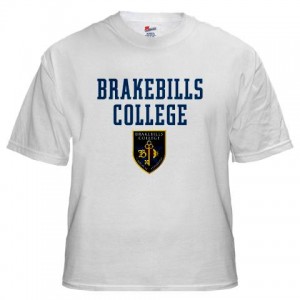
David: I completely relate. After writing this blog for so many years I realized that so much of what I was writing was purely technical information about the industry, or factual information about how alcohol is made, but very rarely did it celebrate the consumption and the general enjoyment of it. That was entirely my motivation for doing these Drinking to Drink interviews. It’s not always easy to celebrate alcohol in a positive and interesting way.
Lev: It’s challenging in a way. The tragic alcoholic decline is a story we’re all familiar with, and it’s a very easy one to tell. It’s harder to write about joy and pleasure, I think. When it comes to alcohol a lot of those elements are missing.
David: They are. Also missing are the specifics, which is what makes your books so fun. My wife was the one who recommended The Magicians to me based on the subject matter, but the first thing I said to her after getting into the book was, “This guy’s talking about Finger Lake rieslings!” Nobody writes about that!
Lev: I did get some emails from concerned readers that I might have a problem because there was so much drinking in the story. But I was able to reassure them.
David: That you’re a man of control.
Lev: I am a man of discipline and control.
David: Who is someone living or dead that you would enjoy having a drink with? Someone you idolize maybe.
Lev: Well, my mentor in terms of writing about wine is Evelyn Waugh, who does it so well; especially in Brideshead Revisited. I think I would like to have a drink with him. I’m almost positive that he would dislike me; on principle just because I’m an American, but he’d find other reasons, too. I think I’d rather be abused by him more than I would enjoy talking friendly with anyone else.
-David Driscoll
